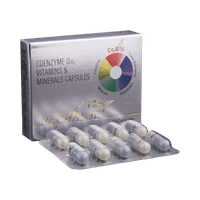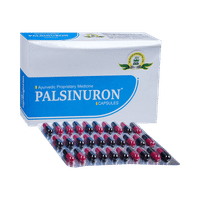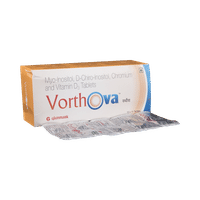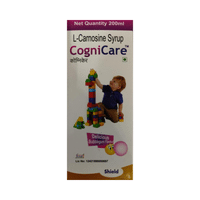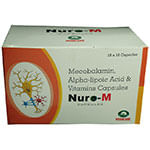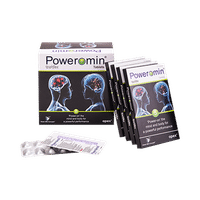Rs.178for 1 strip(s) (10 tablets each)
Amijoy Tablet માટે આંતરક્રિયાનો ખોરાક
Amijoy Tablet માટે આંતરક્રિયાનો આલ્કોહોલ
Amijoy Tablet માટે આંતરક્રિયાનો સગર્ભાવસ્થા
Amijoy Tablet માટે આંતરક્રિયાનો સ્તનપાન
ખોરાક
આલ્કોહોલ
સગર્ભાવસ્થા
સ્તનપાન
તે ભોજન સાથે કે તેના વિના લઈ શકાશે, પણ એક નિશ્ચિત સમય પર રોજિંદા Amijoy 100 Tablet લેવી વધારે સારી છે.
આલ્કોહોલ સાથે પરસ્પર ક્રિયા ની ખબર નથી. કૃપા કરીને તમારા ડૉક્ટરની સલાહ લો. કઈં નહીં
CONSULT YOUR DOCTOR
ગર્ભાવસ્થા દરમિયાન Amijoy 100 Tablet નો ઉપયોગ કરવો જોખમકારક નીવડી શકે છે.
પશુઓના ગર્ભાશય પર અભ્યાસ નુકસાનકારક અસર દર્શાવે છે. જોખમ હોવા છતાં ગર્ભવતી મહિલાઓમાં ઉપયોગ કરવાથી ફાયદા મળી શકે છે. કૃપા કરીને તમારા ડૉક્ટરની સલાહ લો.
પશુઓના ગર્ભાશય પર અભ્યાસ નુકસાનકારક અસર દર્શાવે છે. જોખમ હોવા છતાં ગર્ભવતી મહિલાઓમાં ઉપયોગ કરવાથી ફાયદા મળી શકે છે. કૃપા કરીને તમારા ડૉક્ટરની સલાહ લો.
CONSULT YOUR DOCTOR
Amijoy 100 Tablet ધાવણ આવે તે દરમિયાન ઉપયોગ કરવા સંભવિતપણે અસુરક્ષિત છે.
મર્યાદિત ડેટા સૂચવે છે કે દવાથી શિશુને નોંધપાત્ર જોખમ છે.
CONSULT YOUR DOCTOR
Amijoy 100mg Tablet માટે સોલ્ટની માહિતી
Amisulpride(100mg)
Amijoy tablet ઉપયોગ
સ્કિઝોફ્રેનિયા (માનસિક વિકાર જેમાં દર્દી વાસ્તવિકતાને અસાધારણ રીતે અર્થ સમજે છે) ની સારવારમાં Amijoy 100 Tablet નો ઉપયોગ કરાય છે
Amijoy tablet કેવી રીતે કાર્ય કરે
Amijoy 100 Tablet એ મગજમાં વિચારો અને મિજાજને અસર કરતા ચોક્કસ રસાયણના વાહકોના કાર્યને મોડ્યુલેટ કરીને કાર્ય કરે છે.
Amijoy tablet ની સામાન્ય આડઅસરો
ઉબકા, ઊલટી, સૂકું મોં, કબજિયાત, વજનમાં વધારો, બ્લડપ્રેશરમાં ઘટાડો, Dystonia, Akathisia, પાર્કિન્સોનિઝમ, લોહીમાં પ્રોલેક્ટિનના સ્તરમાં વધારો
Amijoy Tablet માટે સબસ્ટિટ્યુટ
153 સબસ્ટિટ્યુટ
153 સબસ્ટિટ્યુટ
Sorted By
 Rs. 175save 4% more per Tablet
Rs. 175save 4% more per Tablet Rs. 138.50save 25% more per Tablet
Rs. 138.50save 25% more per Tablet Rs. 144.15save 21% more per Tablet
Rs. 144.15save 21% more per Tablet Rs. 178save 3% more per Tablet
Rs. 178save 3% more per Tablet Rs. 198pay 8% more per Tablet
Rs. 198pay 8% more per Tablet
Amijoy 100mg Tablet માટે વારંવાર પૂછાતાં પ્રશ્નો
Amisulpride
Q. Does Amijoy 100 Tablet make you sleepy?
Yes, Amijoy 100 Tablet may make you sleepy, drowsy, less alert, and may even blur your vision. If you experience these symptoms you should not drive or operate heavy machinery.
Q. When should I take Amijoy 100 Tablet?
The time of taking the medicine will be suggested by your doctor depending upon your dose. Doses up to 300 mg can be taken anytime of the day but preferably at the same time each day. Doses more than 300 mg can be taken half in the morning and half in the evening. You can take the medicine during or between meals.
Q. What does Amijoy 100 Tablet do to the brain?
Amijoy 100 Tablet belongs to antipsychotic class of medicines. It acts against dopamine receptors in the brain. Dopamine is a neurotransmitter which helps in regulating mood and behavior. Schizophrenia is associated with an overactivity of dopamine in the brain, and this overactivity may cause delusions and hallucinations. Amijoy 100 Tablet prevents this excessive activity of dopamine in the brain which helps in treating symptoms of schizophrenia.














